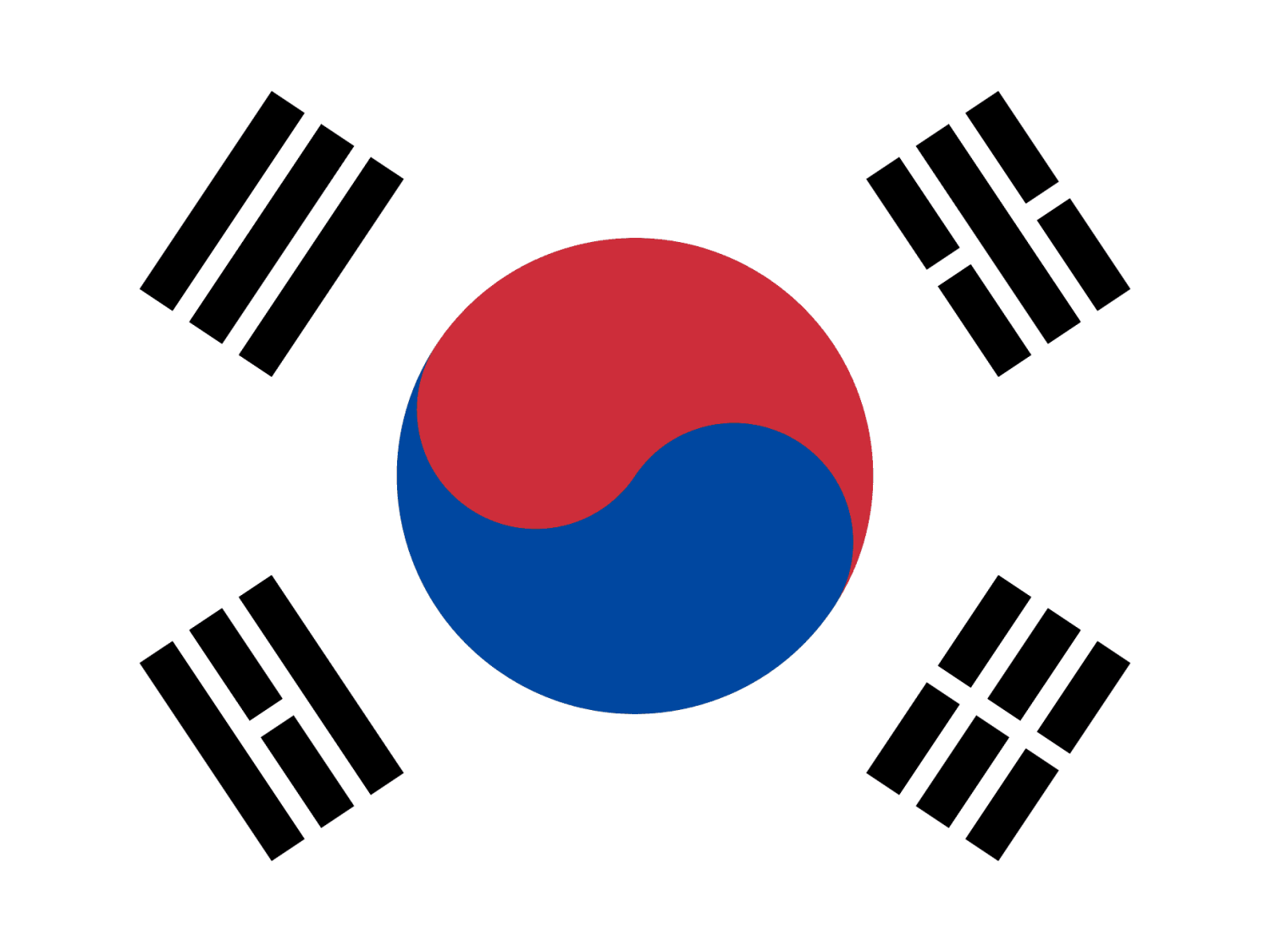Moving to South Korea
Simply move better with reloqio
✔️ Get offers free of charge – No obligation, no worres.
✔️ Quality-tested partners – Reliable and experienced.
✔️ Selection in your region – Find the perfect offer and save up to 45%.

Overview
Introduction to South Korea
South Korea, located on the southern half of the Korean Peninsula, is a country known for its rapid technological advancement, rich cultural heritage, and dynamic cities. Seoul, the capital, is a bustling metropolis that blends modern skyscrapers with ancient palaces and temples. South Korea offers a high standard of living, excellent healthcare, and a well-developed public transportation system. The country is also famous for its pop culture, including K-pop, K-dramas, and cuisine like kimchi and Korean barbecue. However, expatriates should be prepared for the challenges of navigating a language barrier, adjusting to a different work culture, and dealing with high living costs in major cities.
Why Move to South Korea
Moving to South Korea offers the opportunity to live in a country that is both culturally rich and economically dynamic. South Korea’s robust economy, particularly in industries such as technology, manufacturing, and education, provides numerous job opportunities for skilled professionals. The country’s advanced healthcare system, high-quality education, and efficient public services make it an attractive destination for expatriates. Additionally, South Korea’s vibrant culture, with its mix of tradition and modernity, offers a unique living experience. However, expatriates should be prepared for the challenges of adapting to a fast-paced work environment, learning the Korean language, and dealing with the high cost of living in cities like Seoul and Busan.
Cost of Living in South Korea
The cost of living in South Korea is high, particularly in Seoul, where housing is one of the largest expenses. Rent for apartments in central areas can be expensive, although more affordable options are available in suburban areas. Food costs can vary widely, with inexpensive options available at local markets and street vendors, while dining out at restaurants can be costly. Transportation is efficient and reasonably priced, but owning a car is expensive due to high taxes and parking fees. School fees, particularly for international schools, can also be substantial. While South Korea offers a high standard of living, expatriates need to budget carefully to maintain their desired lifestyle.
Visa and Residency
Types of Visas
South Korea offers several types of visas, including work visas, dependent visas, and student visas. The E-2 visa is the most common visa for expatriates teaching English, while the E-7 visa is aimed at professionals in specialized fields. The application process involves submitting documents such as proof of employment, educational qualifications, and a valid passport. Dependent visas are available for family members of work visa holders, and student visas are available for those pursuing education in South Korea. It’s important to apply for the correct visa type and ensure that all documentation is accurate to avoid delays or complications.
Requirements for Obtaining Residency
Obtaining residency in South Korea typically begins with securing a work visa. Once in the country, expatriates can apply for an Alien Registration Card (ARC), which is necessary for long-term stays. The process requires submitting proof of employment, housing arrangements, and a medical examination. The ARC is generally valid for one to two years and can be renewed as long as the expatriate remains employed. Permanent residency is available for those who have lived in South Korea for several years, particularly for those married to Korean citizens or who have made significant investments in the country.
Renewing Residency
Renewing residency in South Korea involves extending your work visa and Alien Registration Card (ARC). The renewal process typically requires submitting updated proof of employment, housing, and a medical examination. It’s advisable to start the renewal process well before your current permit expires to avoid any legal issues. Employers often assist with the renewal process, but it’s crucial to stay informed about any changes in immigration laws and ensure all paperwork is submitted on time.
Finding Accommodation
Popular Neighborhoods in South Korea
In Seoul, popular neighborhoods for expatriates include Itaewon, Gangnam, and Hannam-dong. Itaewon is known for its international community, with a wide range of restaurants, shops, and cultural venues. Gangnam, made famous by the song “Gangnam Style,” is a modern, upscale area with luxury apartments, shopping centers, and entertainment options. Hannam-dong is a quieter, more residential area popular with families, offering spacious apartments and close proximity to international schools. Housing in these areas can be expensive, but they offer the best amenities and conveniences for expatriates. Outside of Seoul, cities like Busan and Incheon also offer expatriate-friendly neighborhoods with a mix of modern and traditional housing options.
Renting vs Buying Property
Renting is the most common option for expatriates in South Korea, as property ownership can be expensive and subject to restrictions for foreigners. Rental properties are widely available, ranging from high-end apartments to more affordable officetels (small studio apartments). Leases typically require a significant security deposit, known as “jeonse,” where tenants deposit a large sum of money with the landlord instead of paying monthly rent. Buying property in South Korea is possible for foreigners, particularly for apartments, but there are restrictions on purchasing land. It’s advisable to work with a reputable real estate agent and legal advisor if considering purchasing property in South Korea.
Tips for Finding Accommodation
When searching for accommodation in South Korea, consider factors such as proximity to work, access to public transportation, and availability of amenities like schools, healthcare, and shopping centers. Working with a local real estate agent can be helpful, especially for expatriates unfamiliar with the market. It’s important to inspect properties carefully before signing a lease, as the quality of housing can vary widely. Be prepared to negotiate rental terms, and ensure that all lease agreements are clear and legally sound. Given the high demand for quality housing in popular areas, it’s advisable to start your search early and be prepared to act quickly when you find a suitable property.
South Korea’s location in East Asia provides easy access to neighboring countries, offering opportunities for travel and exploration. For those interested in exploring the region, the cultural richness and historical sites of Japan, the bustling cities of China, or the natural beauty of Taiwan are all within reach.
Settling In
Healthcare System in South Korea
South Korea has a highly developed healthcare system, with both public and private options available. Public healthcare is accessible and generally of high quality, with subsidized rates for residents. Many expatriates prefer private healthcare facilities, which offer higher standards of care, shorter waiting times, and English-speaking staff. Private healthcare can be expensive, so it’s important to have comprehensive health insurance that covers these costs. South Korea’s hospitals and clinics are modern and well-equipped, making it a reliable place for both routine and specialized medical care. The country also has a mandatory health insurance system for residents, known as the National Health Insurance Service (NHIS).
Education System in South Korea
South Korea offers a variety of educational options for expatriate families, including public schools, private schools, and international schools. Public schools follow the South Korean curriculum and teach primarily in Korean, which can be challenging for non-Korean-speaking children. Most expatriate families opt for international schools, which offer curricula based on British, American, or International Baccalaureate (IB) systems. These schools are known for their high academic standards, though fees can be high. Early application is recommended, as spaces in international schools can be limited, particularly in popular grades. South Korea also has a range of private schools that offer alternative curricula, such as Montessori or Waldorf.
Cultural Etiquette and Customs
South Korea is a society deeply rooted in Confucian values, which emphasize respect for elders, hierarchy, and social harmony. Understanding and respecting local customs is crucial for expatriates. While South Korea is modern and relatively liberal, it is important to dress modestly, particularly in formal or professional settings. Social interactions are often formal, and showing respect in both personal and professional settings is essential. Gift-giving is an important aspect of Korean culture, especially in business relationships. Additionally, learning some basic Korean phrases can enhance your experience and help you integrate more smoothly into South Korean society.
{filterable_table}
Ready for your move to South Korea? Get free quotes now!
Enquire about moving offers here and get quick answers with cost estimates.
It only takes 2 minutes and you can save up to 45% on your move to South Korea!
